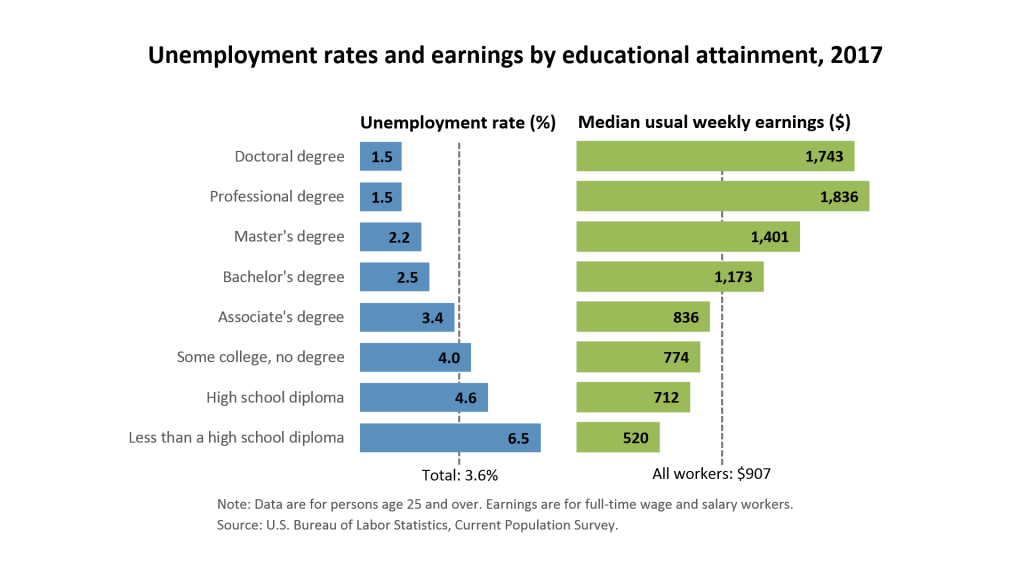
Requirements For A Transportation And Logistics Degree
A job in the field of logistics typically requires at least a bachelor’s degree. While every program has different educational requirements, there are certain characteristics that most programs have in common.
Let’s take a look at what you can expect from a transportation and logistics program. Click on the links below to learn more about what it takes to earn a degree in this field, and how to advance your career:
- What Are The Different Types Of Logistics Degrees?
- Which Type Of Logistics Degree Is Right For Me?
- What Are My Career Options In The Logistics & Transportation Industry?
- Do I Need To Be Certified To Work In Logistics & Transportation?
- Should I Pursue A Master’s Degree In Logistics?
What Are The Different Types Of Logistics Degrees?
Although most students opt for the bachelor’s degree, some schools have an associate’s degree program available in this field as well. An associate’s degree often takes two years to complete, while a bachelor’s degree takes three to four years to complete.
You can also earn a master’s degree, which takes an additional one to two years to complete. Each degree program prepares graduates for different types of employment. If you’re ready to commit to a four-year program, a bachelor’s degree will prepare you for many entry- to mid-level careers in this field.
It makes sense to educate yourself while researching your options. There are a variety of degree options in logistics, and it’s important to know the differences. We’ve outlined the most common degree programs to help you get started:
- Associate of Applied Science (AAS) in Supply Chain Management and Logistics: This degree provides students with the knowledge and abilities to apply individual technical skills necessary to pursue a career in exporting/importing, materials handling, global transportation, warehouse and distribution center management, purchasing management, and traffic management.
- Bachelor of Science (BS) in Logistics and Supply Chain Management: This degree incorporates foundational knowledge in several related disciplines including accounting, economics, finance, information systems, and management. Students learn how to manage operations in areas of procurement, warehousing, and transporting goods.
- Bachelor of Arts in Business Administration (BBA) in Logistics and Operations: This degree focuses on problem solving, communication, and analytical and research-oriented professional skills. Students earn a degree in business administration with a concentration in logistics and operations. Graduates are often qualified for entry- and mid-level leadership positions within the public and private arenas.
- Master of Science (MS) in Logistics and Supply Chain Management: This degree prepares graduates with the knowledge essential to effectively and efficiently manage a supply chain, including sourcing and procurement, conversion, and all logistics management activities. It can also allow you to further your current role in this industry.
Now that you’re more familiar with the most common degree options in logistics, check out the programs that can lead to a variety of career options in logistics and related fields:
Which Type Of Logistics Degree Is Right For Me?
The decision comes down to interests, finances, and available time. If you’re a recent high school graduate and are are considering a career in logistics, an associate’s degree might be right for you. An associate’s degree is a great introduction to any area you think you might want to pursue. It’s also a great head start to earning a bachelor’s degree.
If you’re ready to pursue a bachelor’s degree, your options are more varied. For example, you can pursue a degree in business with a concentration in logistics. Alternatively, you can pursue a Bachelor of Science in Logistics and Supply Chain Management.
No two programs are the same, but many of the same courses are offered. Some of the courses you can expect to take include law and ethics, international business, management, supply and demand, economics, organization, policy, business administration, conflict resolution, inventory management, materials handling, manufacturing management, financial reporting, and distribution.
What’s great about studying logistics, is that logistics covers many areas, i.e. transport, warehousing, customs clearing, packaging, purchasing, customer services, stock management, just to name a few. You might even take classes that cover the topics listed below:
- Advanced supply chain management
- Business law
- Logistics systems analysis
- Marketing theory and practice
- Service management
- Strategic management
- Transportation management
- Tourism logistics
A bachelor’s degree program often requires students to complete general education courses. You’ll also have to complete elective courses, which are essentially credit hours you choose based on your interests. You can use these courses to pursue a double major, or to take additional courses in logistics.
If you want to earn a masters’ degree in this field, you may need to take the GMAT before you apply. Some colleges also offer the option to earn a bachelor’s and master’s simultaneously. This option cuts down on the time necessary to complete both degrees. However, to earn both degrees simultaneously, students are often required to meet a minimum GPA threshold.
There is also the option to specialize in logistics and supply chain management. As mentioned previously, some schools offer degrees in marketing, business, or finance with the option to specialize in logistics or a related field. This option places a greater emphasis on another area of study, but may still lead to a career in logistics.
What Are My Career Options In The Logistics & Transportation Industry?
There are a variety of jobs in logistics, including logistic managers, logistic engineers, logistic analysts, logisticians, and logistics coordinators. Logisticians, and similar roles, work in almost every industry. What’s more, the importance of logistics and supply chain management has grown significantly. That means more jobs, variety, and opportunities for advancement.
Below is a list of common roles for those with a degree in logistics. These roles are found in many different industries across the globe:
- Logisticians: Logisticians oversee activities that include purchasing, transportation, inventory, and warehousing. They may direct the movement of a range of goods, people, or supplies, from common consumer goods to military supplies and personnel.
- Management Analysts: Management analysts propose ways to improve an organization’s efficiency, and advise managers on how to make organizations more profitable.
- Cost Estimators: Cost estimators collect and analyze data to estimate the time, money, materials, and labor required to manufacture a product, construct a building, or provide a service.
- Purchasing Managers and Purchasing Agents: Purchasing agents buy products and services for organizations to use or resell. Purchasing managers oversee the work of buyers and purchasing agents.
- Industrial Production Managers: Industrial production managers oversee the daily operations of manufacturing and related plants. They coordinate, plan, and direct the activities used to create a wide range of goods.
Do I Need To Be Certified To Work In Logistics & Transportation?
While certifications may not be necessary to guaranteeing a job, they can show initiative as well as prove a wide range of specialized knowledge within the field. The American Society of Transportation and Logistics (“ASTL) lists four programs of certification:
- Global Logistics Associate (GLA) – This certification is internationally recognized for entry level positions, acknowledging the completion of logistics and supply chain coursework. Obtaining the GLA requires successful completion of a comprehensive exam, and recertification is every three years.
- Professional Designation in Logistics and Supply Chain Management (PLS) – PLS certification proves one’s ability to address ever-changing topics pertinent to logistic managers on a global scale. There is a fee to take the multiple choice exam, recertification is every five years, and certified members must attend an industry related conference or educational program.
- Certified in Transportation and Logistics (CTL) – This is the premier industry certification. Must be an active member of the ASTL, as well as complete three compulsory exam modules and three elective exam modules.
- Distinguished Logistics Professional (DLP) – This certification is earned when an individual acquires twenty years of experience in the field. Attaining certification requires being nominated by another member of the ASTL and two letters of recommendation.
Should I Pursue A Master’s Degree In Logistics?
Again, the decision comes down to interests, finances, and available time. A master’s degree may lead to higher earnings and better career advancement. If you have the time and the resources, earning a master’s degree in logistics can open more doors. You’ll also have the opportunity to choose an area of specialization while earning a master’s degree.
A master’s degree often takes two years to complete, depending on if you take courses full-time or part-time. It also depends on the type of program you enroll in and your prior education. If you don’t have a background in logistics or a related field, you might have to take a few courses prior to enrolling.
A master’s degree will also help you improve your researching, writing, and analyzing skill set. These skills are beneficial to employers as they save time and money. And in the field of logistics, time and money are of the essence.
Check out this graph from The Bureau of Labor Statistics. You’ll notice the increase in earnings by level of education attainment (source: BLS.gov: Employment Projections, data for 2017).

Once you’ve earned a degree in logistics, it’s time to put the job search in motion. Jobs in this field are growing, and according to The Bureau of Labor Statistics, employment of logisticians is projected to grow 7 percent from 2016 to 2026, about as fast as the average for all occupations. Once you’ve earned your degree, you’ll be ready to enter the field. Regardless if you have an associate’s degree or a PhD, the logistics industry is looking for workers at all levels, from executives and managers to entry-level employees.
And if you’re just starting out, don’t worry. Jobs in this field will be around for a long time. Businesses will always need logistics professionals to coordinate shipping and merchandising efforts. Your degree will serve you well today, and in tomorrow’s competitive market. The first step is to consider your academic and career goals, and go from there. Online programs are also an option. If you need maximum scheduling flexibility, distance learning may be a good fit for you.
